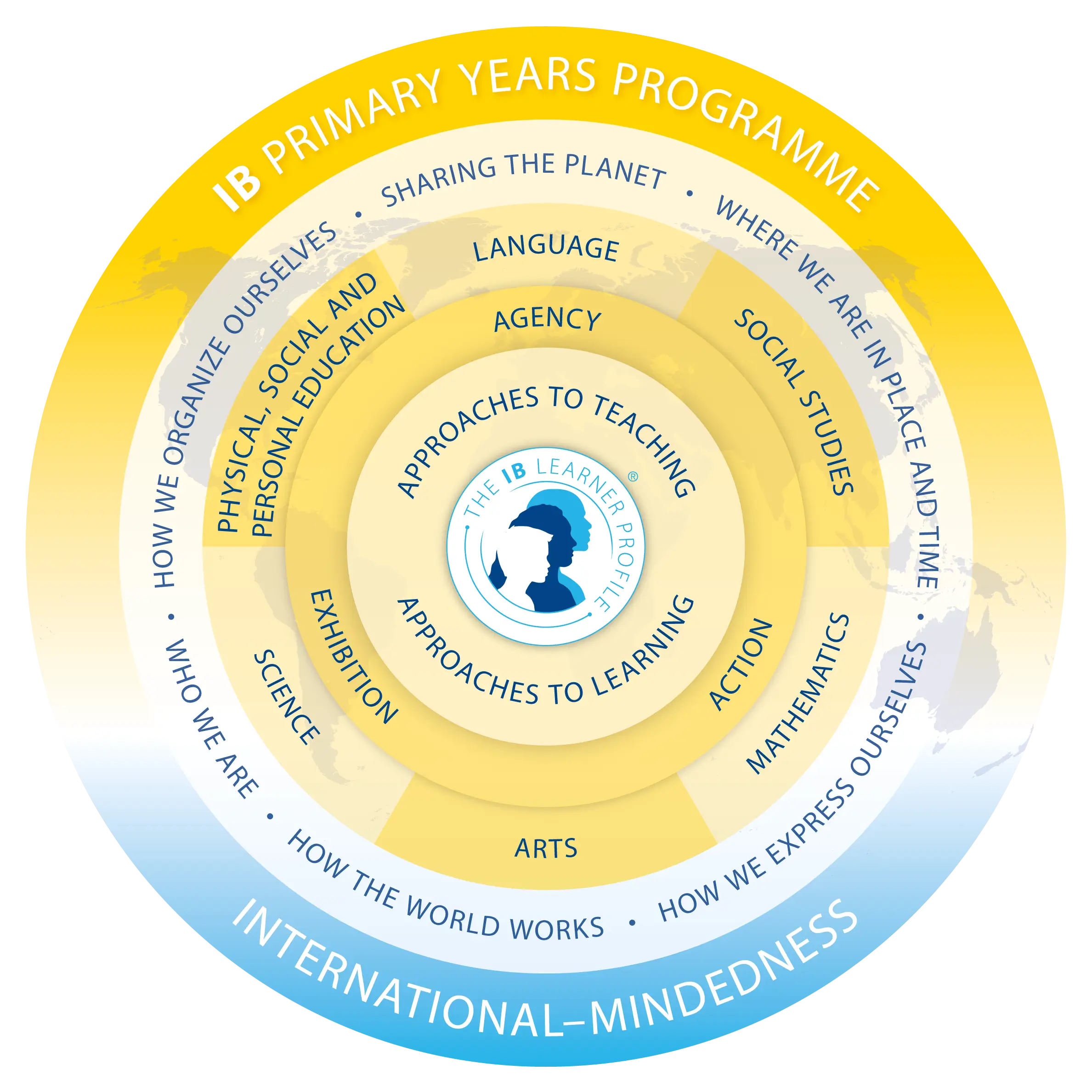Over the past decade, the teachers at XLIS have been developing an authentic curriculum for our students. Through our six units of inquiry, the community learns about issues that are common to humanity. Authentic assessments give our students the opportunity to collaborate to propose solutions to these real-life problems. This curriculum allows for learning to take place in a transdisciplinary manner. Teachers carefully take subject knowledge and map it into units to allow students to use the knowledge and apply it.
In this section of our website, you will find the yearlong or horizontal planners for each grade level. Every class in the grade will be progressing through the units on the planner at the same pace. Teachers meet weekly to plan how they will plan, teach, and assess the elements of the plans. You will see the transdisciplinary theme and beneath it the elements of the PYP that the students will be studying. These elements include knowledge, concepts, approaches to learning and attributes of the IB learner profile.
In order to have a coherent vertically aligned curriculum, XLIS adopted their learning outcomes from the Ontario curriculum in Canada. This subject-specific knowledge has been mapped into each unit in order for our students to learn at a recognized international standard within the framework of the PYP. Students build upon prior knowledge each year to grow to new levels of understanding. This section of the website is included so your community has a very clear and in-depth opportunity to understand how the PYP works in our context.
Year-Long Plans
HORIZONTAL AND VERTICAL PLANNERS 2025-2026
Mission
Vision
Schoolwide Learner Outcomes
Inquirers
Knowledgeable
Thinkers
Communicators
Principled
Open-minded
Caring
Risk-takers
Balanaced
Reflective
Primary Years Programme (PYP)
The primary school at XLIS is made up of students from three to eleven years old. We use a curriculum framework called The Primary Years Programme (PYP), which is designed around the best of research practices in education.
It is transdisciplinary – meaning the programme strives to balance between traditional stand-alone units and transdisciplinary units. Stand-alone units are usually taught in isolation in the areas of Mathematics, Physical Education or other single subjects. Transdisciplinary units combine different subjects. This way the students make connections in their learning across different disciplines. Each unit, whether it be a stand-alone or transdisciplinary unit contains aspects of Knowledge, Concepts, Approaches to Learning (ATLs), Action and IB Learner Profile attributes. This way our students experience consistency in the program and make connections across disciplines. This continues into middle and high school.
The PYP is concept based – meaning that each unit is based around a central idea. This is a guiding statement that contains concepts the students will be inquiring into. The program is also driven by six key concepts (form, function, connection, causation, perspective, change & responsibility). Each unit’s lines of inquiry are connected to three of these key concepts.

The PYP is an inquiry-based curriculum – meaning the programme is driven by students’ interests. The students are taught to research information on topics of their interest, within the boundaries of the unit of inquiry. One of the main theories the PYP is based upon is constructivism. Students are taken from their current level or understanding to a new level of understanding at differentiated paces. Differentiation is very important at XLIS and our teachers have received extensive professional development in this area.
The PYP values play – throughout the programme a high importance is placed on play. Play is what children enjoy most and PYP teachers skillfully guide learning through play. Careful provocations are set up so students can interact with content and concepts through play.
Assessment in the PYP is based on Understanding by Design – meaning a backward planning approach to assessment is utilized. Each unit’s summative assessment is planned at the start of the unit. Lines of inquiry are formatively assessed throughout the unit and planning is adjusted regularly in accordance to students’ needs. XLIS also uses standardized testing to track our students’ progress. Three times a year our students are assessed in the areas of Mathematics, Reading and Writing.







